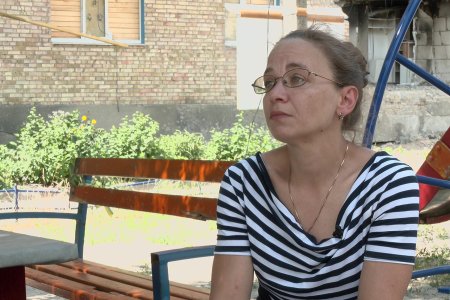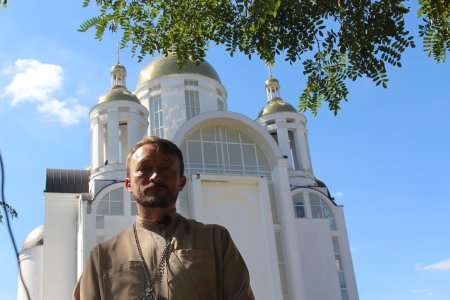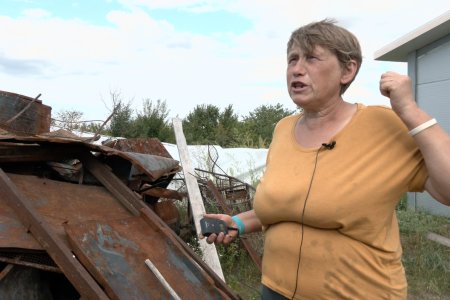My name is Iryna Marchenko. I live in the village of Zdvyzhivka, Buchansky district. Almost a year and a half has passed since the terrible events took place here: occupation, murders, robberies, destruction of houses.
How do you feel after everything you’ve experienced?
Fear. Fear that it will happen again. The attitude towards some ordinary things has changed. For example, to sounds. When something heavy rides, it becomes scary, and I must see what it is. When there is a crash somewhere, there is immediately the same association. I can’t listen to music with headphones anymore, as I constantly need control — I need to hear everything. And the main thing is the feeling that nothing can be put right. That all those who died — died. It is impossible to bear. These events are a constant background, and you know they happened. It is very difficult to realize that many people are no longer alive, that everything continues, and people continue to die.
Please tell me, what is your profession, and how did you live at the time of the temporary occupation of the village?
By profession, I am a medical worker. It so happened that I finished my duty, returned home, and didn’t get to the next duty because Katsap’s [ethnic slur for Russians] tanks appeared on the street. I saw them drive in. They stood along the street for ten days. Machine gunners, tanks. Then they moved to the center of the village. There was a headquarters in Zdvyzhivka, as I later found out. And so it was throughout the occupation. After they left, I didn’t leave the yard for another week. I didn’t believe it was all over.
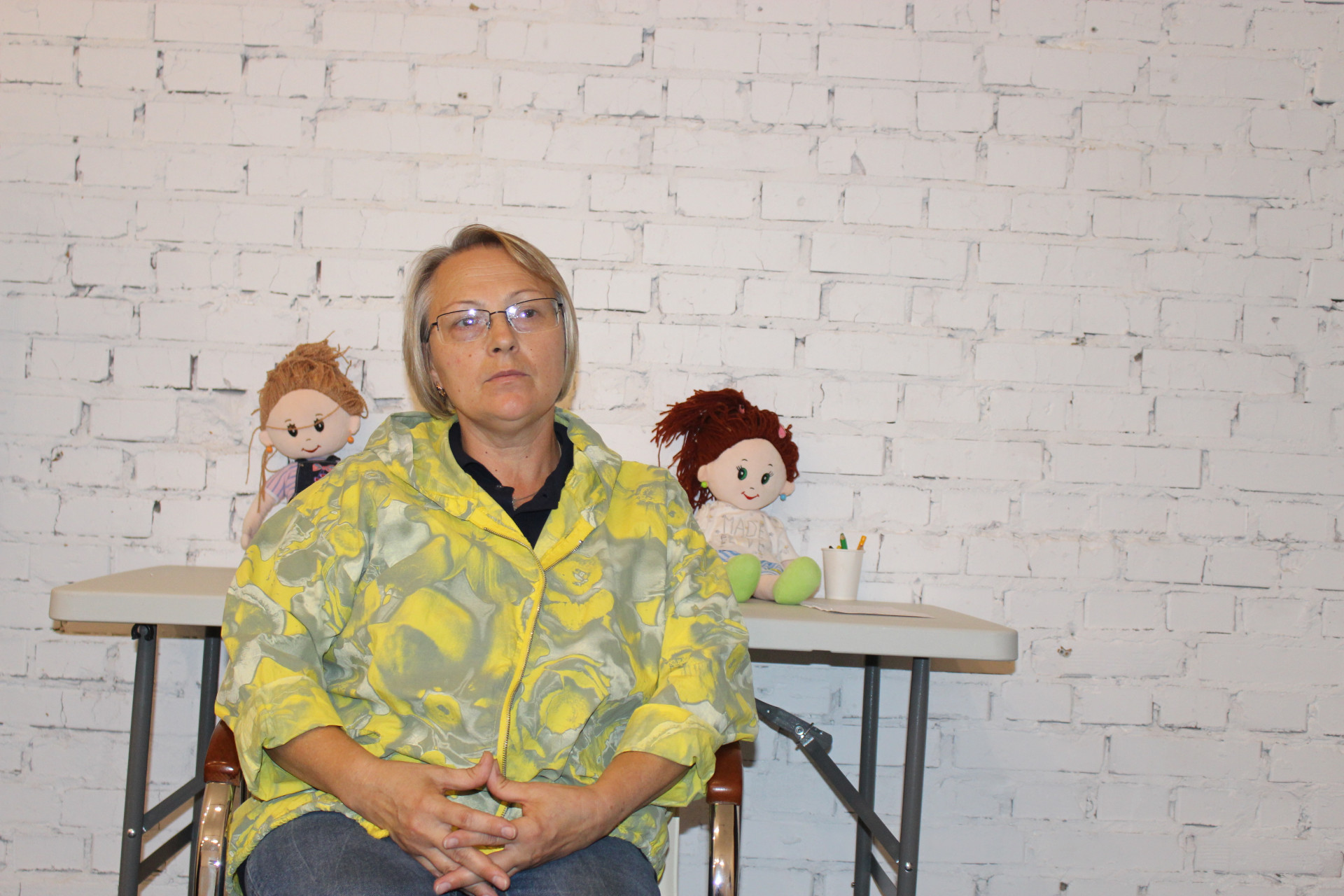
They said that in Zdvyzhivka, there were a lot of killed people and a lot of destroyed houses. Have you witnessed this horror?
I only heard constant shots and explosions. The Russians were shooting; they were standing nearby in the forest. They were shooting near us, and I understood where they aimed: towards Bucha and Hostomel. The street on which the murders and destruction took place is in a slightly different place, at the entrance to the village. I live on the outskirts, so I only heard. When the occupation ended, news spread and our priest showed me, as a medical worker, photographs of unidentified women. I was one of the first to see a video of guys tortured in the yard. I saw this.
You were, one might say, at the epicenter of events throughout the entire period of occupation. Have you witnessed war crimes? Or maybe someone among your acquaintances, friends, or relatives suffered from the Russian invasion?
If robbing houses is a war crime, I witnessed [the Russians] looting abandoned houses. People left, and they [the Russians] drove up in Kamaz trucks and took out everything they could. I didn’t see how people were killed. I just saw many Russians, how they flew in helicopters and scattered heat traps, how people’s gardens were set on fire. As a result, the house of a man who died three days later burned down; he did not survive the pain. I saw this.
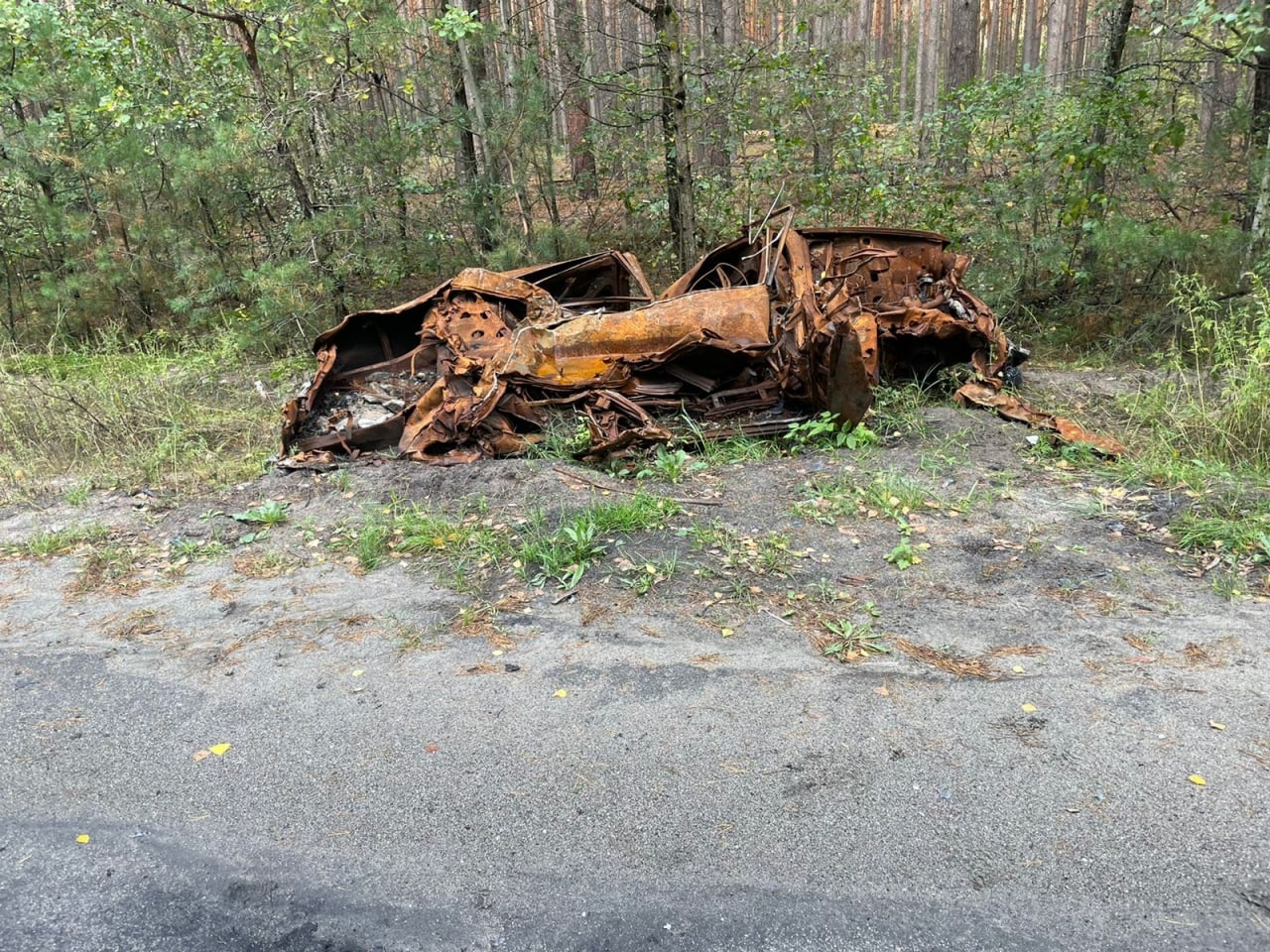
Were you working at the time?
I didn’t work then because I couldn’t escape or even leave the street. Now, I work, but not in my specialty.
Do you think there is a prospect for restoration and construction of new houses? Is it possible to restore destroyed human destinies? And when do you think this might happen?
You know, a year has already passed. Just as there were destroyed houses in the village, they still stand. Somehow, it is challenging for the people in power. I see that the authorities set many conditions to help a person. Where it is broken, it remains broken. In Bucha, it’s different: Vokzalna Street is lovely and the rest. But our roads are damaged. Nobody is in a hurry to restore houses. Will everything be restored to a pre-war condition? Sometimes, it seems possible, especially when it feels really sad. When you suddenly see a lot of military people. All this is scary. And it also seems to me that we won’t be able to cope without help from abroad.
